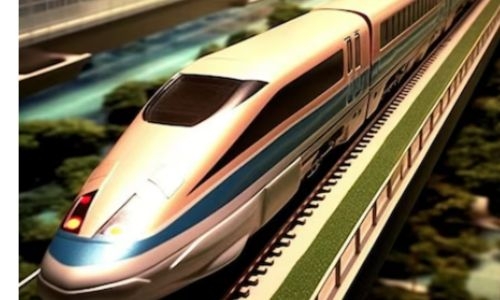The Gulf Railway project, covering over 2,100 kilometers across the six Gulf Cooperation Council (GCC) states, is gaining momentum as it approaches its 2030 completion date. MEED magazine reports that significant progress has been made, with the final stages of awarding a contract for an operational plan study currently underway. This follows the completion of various project segments, including the UAE’s section to the Saudi Arabian border, and the Ras Al Khair-Dammam rail line in Saudi Arabia. Plans are also in place for the Bahrain-Saudi Arabia causeway link.
The Hafeet Railway Company, a joint venture between Etihad Rail and Oman Rail, is working on a network connecting Suhar and Abu Dhabi. Design and implementation documents for the first phase in Qatar have been finalized, with a consultancy agreement for Kuwait’s section expected in 2024. Border meeting points have been identified, and 13 technical annexes governing execution and operation have been approved. A tender for an asset management system is also in the works, alongside the ratification of a unified operational document.
The railway network is poised to boost regional connectivity, trade, and economic integration, forecasted to carry 6 million passengers annually by 2030 and 8 million by 2045. Freight volume is expected to rise from 201 million tonnes in 2030 to 271 million tonnes by 2045. In addition to economic benefits, the project aims to enhance intra-GCC trade, create jobs, reduce road maintenance costs, strengthen social ties, lower traffic accidents, decrease fuel consumption, and minimize environmental impact.
The Gulf Railway project represents a significant infrastructure development in the region, with the potential to transform transportation and trade across the GCC states. The ambitious rail network aims to streamline travel and freight movements, facilitating greater economic activity and regional cooperation. As the project enters its final stages, expectations remain high for the positive impacts it will bring, both in terms of economic growth and social development.
The collaboration between various countries within the GCC demonstrates a commitment to regional unity and progress, as the railway project promotes greater integration and connectivity. By creating a seamless transportation network, the Gulf Railway will help to remove barriers to trade and commerce, fostering a more interconnected and prosperous Gulf region. This infrastructure project is poised to enhance the overall economic landscape and improve the lives of individuals living in the GCC states.
As the Gulf Railway project moves closer to its completion date, stakeholders are optimistic about the transformative potential of this infrastructure development. By connecting key cities and trade hubs across the Gulf region, the railway network will help to unlock new opportunities for economic growth and collaboration. With the potential to enhance regional trade, connectivity, and social development, the Gulf Railway project stands as a testament to the vision and commitment of the GCC states to build a more integrated and sustainable future.

Leave a comment
Leave a comment










